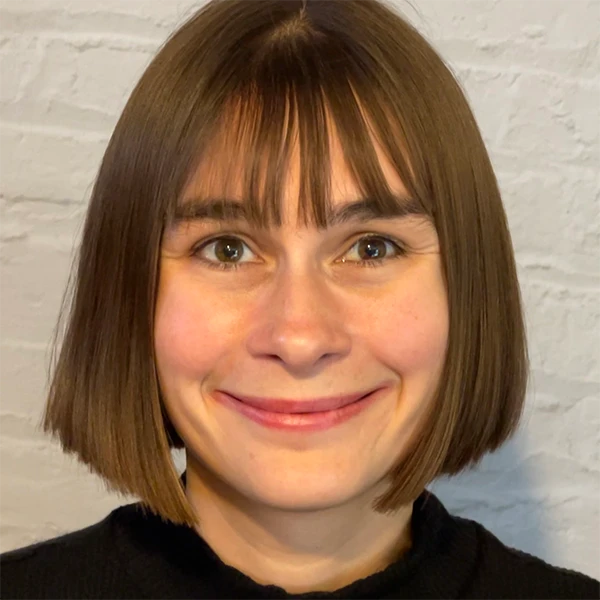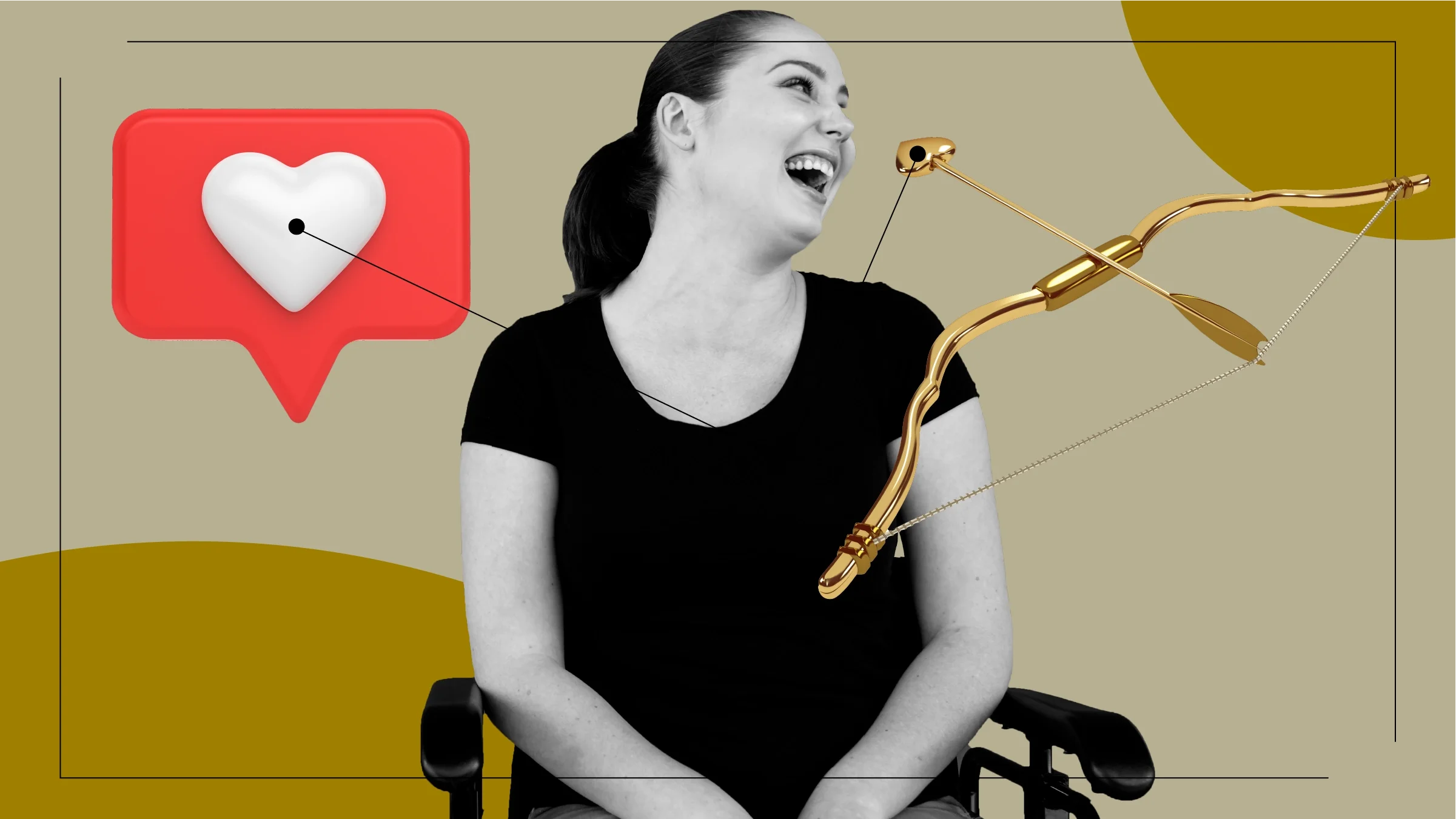Key takeaways:
Brooke Eby was diagnosed in 2022 with amyotrophic lateral sclerosis (ALS), a progressive degenerative disease that affects the body’s nervous system.
At first, she assumed her dating life was over. Then she decided to test out the dating apps.
Dating when you have a terminal illness requires heavy conversations early on, Brooke learned.
Brooke Eby’s first 29 years of life seemed picture-perfect. She had terrific friends, a loving family, and enjoyed life as a high school cheerleader.
“It was truly like ‘Friday Night Lights,’” she says of the idyllic TV show.
Then, before she turned 30, she started experiencing weakness in her foot. She felt like she was walking slower than usual. Maybe her calf was tight, she reasoned. She had just moved to New York City, and her colleagues told her she looked like she was limping. That kick-started a 4-year diagnosis process.
In March 2022, after seeing dozens of doctors and undergoing “every test under the sun,” Brooke was diagnosed with amyotrophic lateral sclerosis, or ALS. It’s a progressive neurodegenerative disease that affects nerve cells in the brain and spinal cord, and there’s no cure. The average survival time is about 3 years.
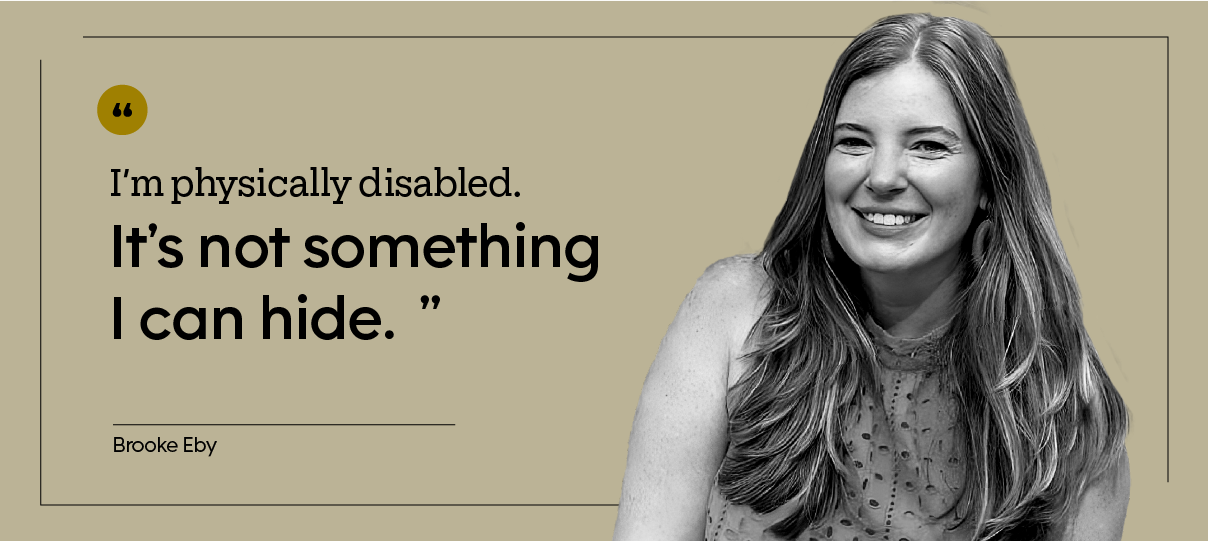
Brooke has no family history of the disease, so the diagnosis was a shock.
“That was the phase when I just crawled into bed and ate M&M’s every day and was distracting myself in any way possible,” she says. “But then after a couple months, I was able to keep going. You have to get up every day. I just started living my life.”
Brooke soon learned, however, that no one knew how to react to a 30-something with a terminal disease. That included potential romantic partners.
A foray into dating apps
When Brooke was diagnosed with ALS, she was single. And she figured there was no way she’d date again, as she describes in this video on her popular TikTok channel. Then she went to brunch with some friends, and her best friend’s mom told her: “Don’t count anything out yet. It could still be part of your life.”
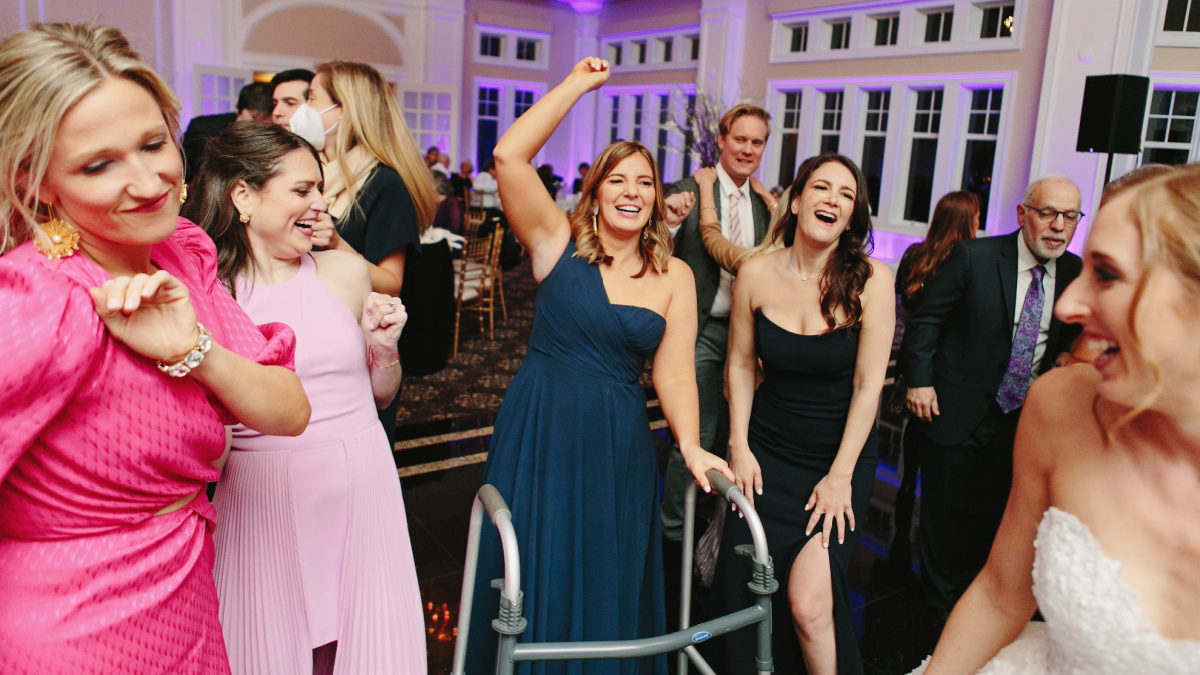
That encouraged Brooke to open herself up to the idea of dating, so she created profiles on some dating apps. She included her diagnosis in her profile. “I was diagnosed with ALS,” she wrote. “Hope you’re looking for a 2- to 5-year relationship.” That way, she says, prospective dates could eliminate themselves and only reach out if they were truly interested.
Brooke’s favorite part of using the apps was making jokes about her diagnosis. She recalls using funny pickup lines that acknowledged her disease. One favorite: “Dating me is like getting to skip all the lines at Disney World.” She posted about some of the responses she got on her TikTok. For example: “Can I borrow your cane? I feel myself falling.” And: “Long walks on the beach are overrated.”
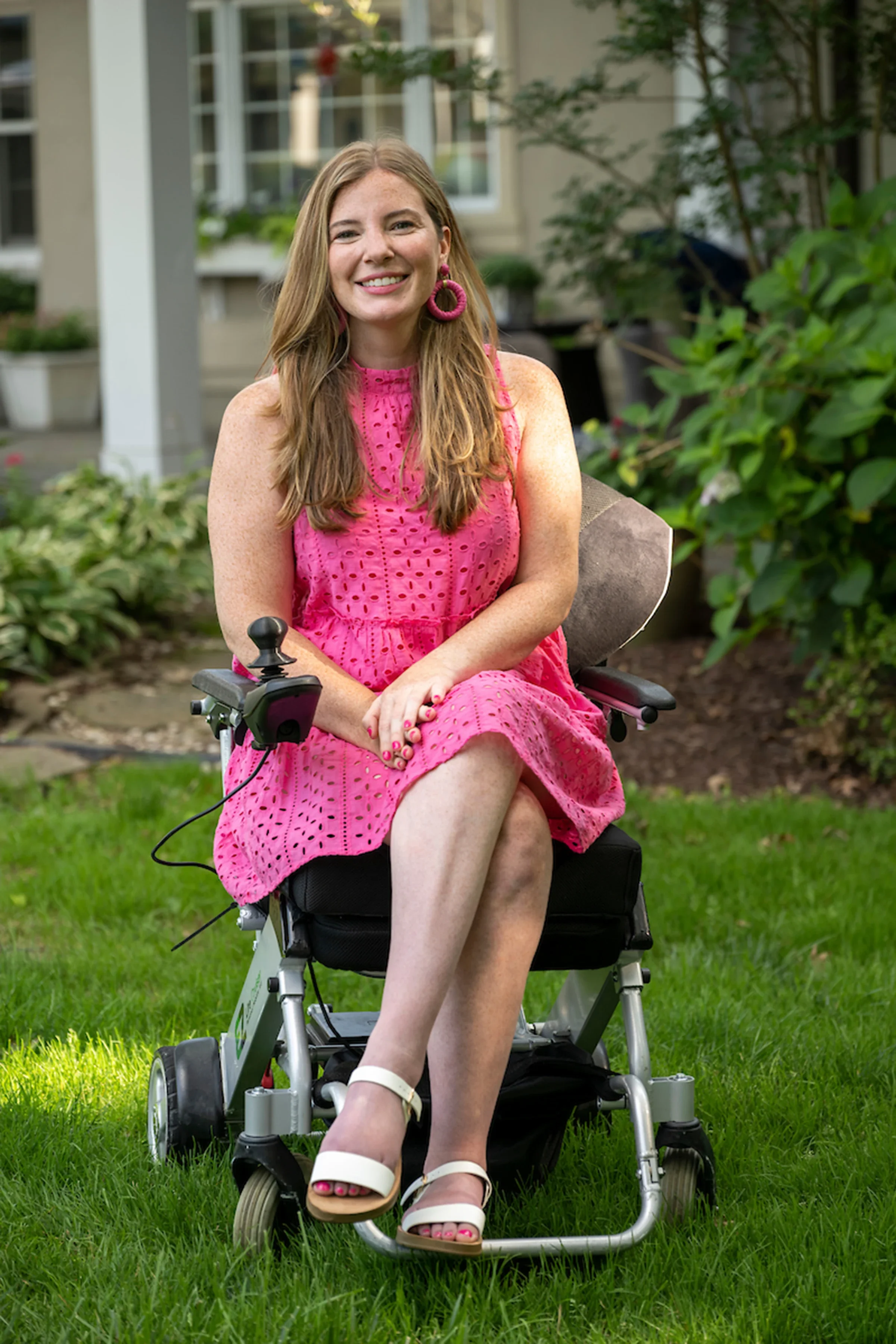

Brooke’s dates were never outwardly rude to her. No one ever stood up and left a date because of her disease. Some connections did fizzle out, just like other daters experience. “Maybe it was just, there was no connection. I don’t know,” she says. “That part so far hasn’t felt all that different from regular dating, where you’re like, ‘I guess I'll never know.’”
A few months after she got on the apps, Brooke ended up in a relationship with an old friend. It lasted about a year and ended a few months ago.
“What I expected was once I got into a relationship with this disease, I’d be too scared to leave it,” she says. “Because you’re like, ‘Who else would want to deal with this?’” But she’s always had a strong gut instinct, she says, and when she knew the relationship wasn’t right anymore, she called it quits.
“Even in the face of a terminal diagnosis, I still would rather be alone than be with someone that’s not my match,” she says.
I thought only older people got ALS: Amyotrophic lateral sclerosis is more common for people between the ages of 60 and 75. But younger people can get it, too.
How do you stay positive if you get a devastating diagnosis? One man with ALS has gotten even more connected to his community.
How do you prepare for the effects ALS will have on your body? Learn why one man banked his voice to help him communicate in the future.
Fast-tracking the serious conversations
Brooke, who’s now 35 and lives in the suburbs of Washington, D.C., isn’t sure what her dating future looks like. She jokes that she usually only enjoys the first few months of getting to know someone, and then she’s ready to move on. She genuinely enjoys spending time alone and doesn’t crave another person’s constant company.
If Brooke does start dating again, she knows that first dates might be awkward. While she used to use a cane to get around, she now uses a wheelchair.
“I’m physically disabled. It’s not something I can hide,” she says. “I can’t be like, ‘Let’s wait until the third date to talk about this.’”
Dating with a terminal illness requires heavy conversations. She had to ask her last boyfriend early on if he wanted kids. She won’t be able to have any, so that would have been a deal breaker. She also had to ask if he would be comfortable with the fact that she would eventually need caregiving.
“There’s a lot of things you have to clear the air on,” she says. It sometimes feels like you’re interviewing your date, she adds. It can be confusing to navigate. “I wish there was a handbook,” Brooke says. “It’s really not an intuitive thing.”
Communication is key
Right now, Brooke says she’s feeling pretty good. She’s gotten weaker in the last 2 years, though. Most people with ALS eventually need help breathing.
“I’m still talking. I’m still breathing,” she says. “It’s weird that those are the baselines that I have to be grateful against.”
She works full time in addition to her ALS advocacy efforts, and her busy schedule helps distract her from her disease. Sometimes she gets frustrated with her physical limitations, such as having trouble transferring out of her wheelchair. But she tries to minimize those moments.
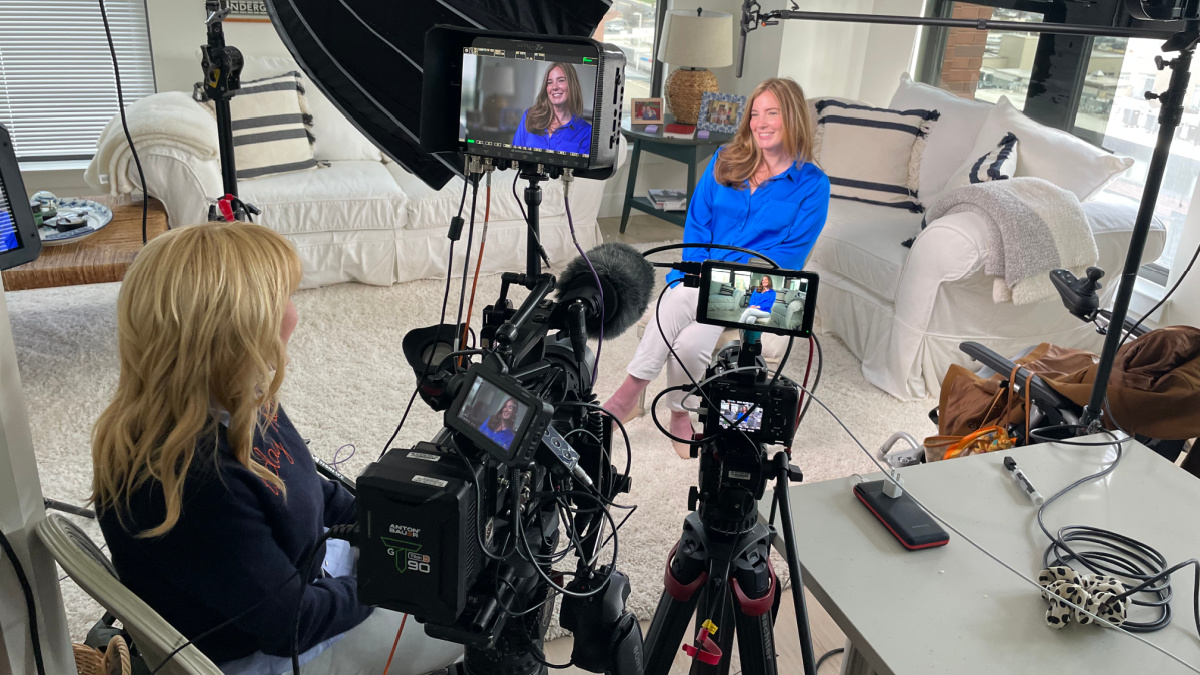
Dating someone with a terminal illness isn’t a one-size-fits-all experience, she stresses. She knows some people in her support group who don’t like when their date helps them without asking, but she feels the opposite.
“It’s not all that different from outside-of-ALS dating,” she says. It’s crucial to communicate about what you want and need from the other person. She says she hopes people who end up dating someone with a terminal condition understand how important it is to separate the romance from daily care tasks.
“You can play the role of partner and caregiver, but I don’t think those should be equal,” she says. “You should be a partner, and then you should understand what caregiving aspects you need to help with, and what you can outsource.”
It's also important to recognize that most people with ALS need intensive support within 3 years.
“The disease can move quickly,” Brooke says. “It can devastate lives and relationships and families.” That’s why it’s critical not to ignore it or pretend it isn’t happening. “You can’t shy away from it,” she says. “It’s not something you can hold internally.”

Why trust our experts?
